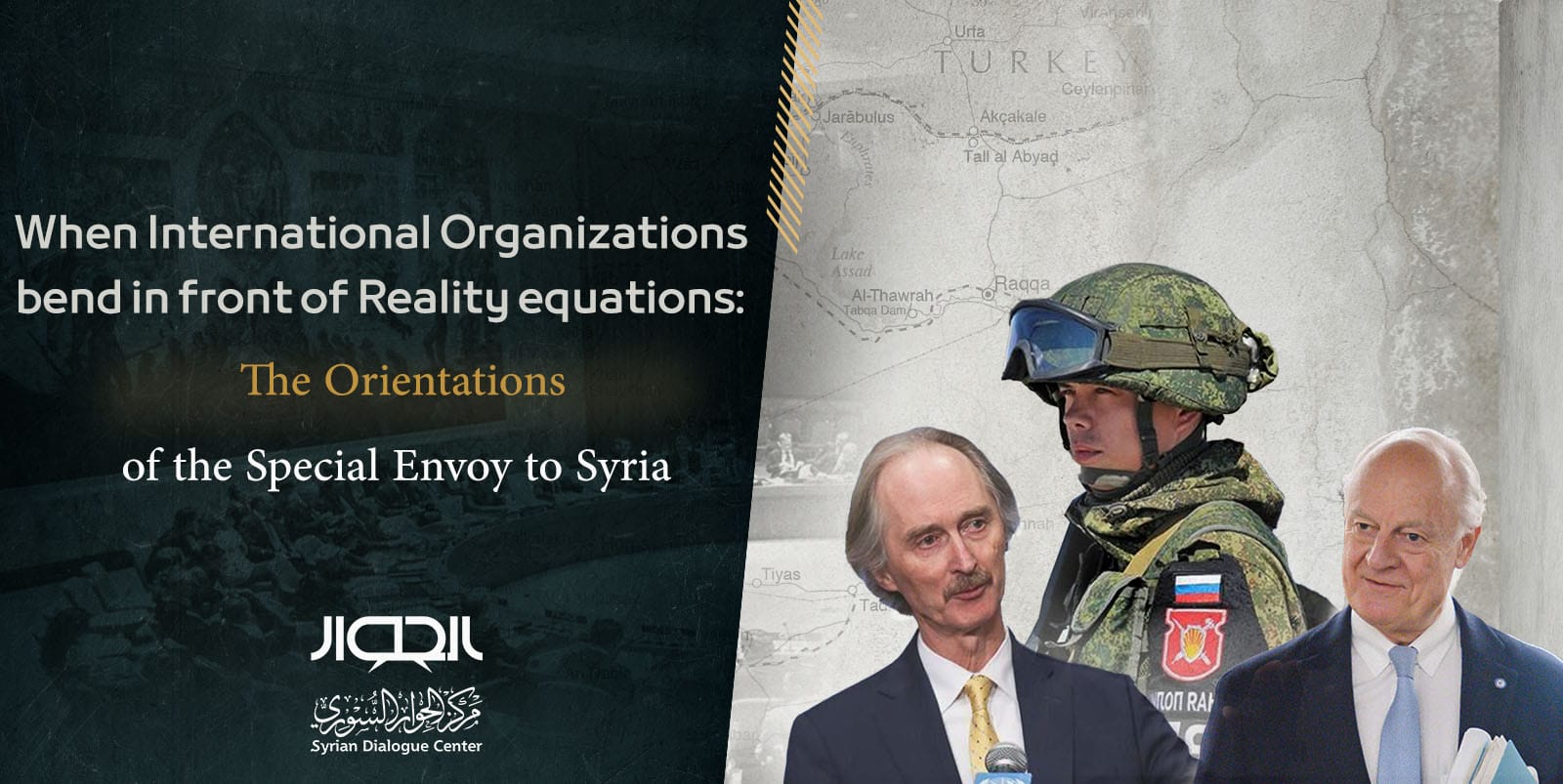
When International Organizations bend in front of Reality equations: The Orientations of the Special Envoy to Syria
Executive Summary
The paper delves into the conduct of the UN Special Envoy regarding the implementation of UN Security Council Resolution 2254 of 2015, which represents a significant indicator of the UN’s approach to resolving the Syrian conflict politically. This paper, utilizing a qualitative thematic analysis methodology of the Special Envoy’s briefings to the Security Council, aims to scrutinize the extent of his commitment to facilitating the implementation of Resolution 2254.
The paper revealed that the Special Envoy merely echoed the international and regional stances, largely aligned with the Russian vision for resolving the Syrian crisis. He emphasized the constitutional committee and embraced the Russian narrative on “safe zones” and “terrorism,” showcasing a prioritization of counter-terrorism efforts over essential issues like detainees’ release or the transitional governance body. The international envoy’s briefings highlighted the priority of countering terrorism in the political process, mentioned in (29 instances).
Regarding confidence-building measures, a key provision of Resolution 2254, the international envoy repeatedly emphasized required actions such as releasing women and children unilaterally, improving access to information about them, and implementing a nationwide ceasefire. A total of (54 instances) addressed confidence-building steps, with (20 instances) reminding of the ceasefire necessity.
However, the humanitarian aspect did not receive adequate attention in the Special Envoy’s briefings. It was mentioned in (11 occasions), except in a 2020 briefing, focusing on aid delivery’s importance without addressing Assad’s regime’s responsibility for depriving some areas of aid, as witnessed in Eastern Ghouta. There was no critique of Russia’s political coercion practices at the Security Council, especially since 2020.
Outside the provisions of Resolution 2254, in connection with Syrian issues like Western sanctions on Assad’s regime, drug production, and foreign presence in Syria, the international envoy mentioned Western sanctions in his annual briefings four times after 2021, deeming them a major cause of Syria’s tragedy. Regarding Western sanctions and Assad regime’s illicit activities to fund its militias, particularly drug production and trafficking, the international envoy referred to it in (3 instances) merely as security incidents without holding any party responsible.
Read the full report (Arabic)






